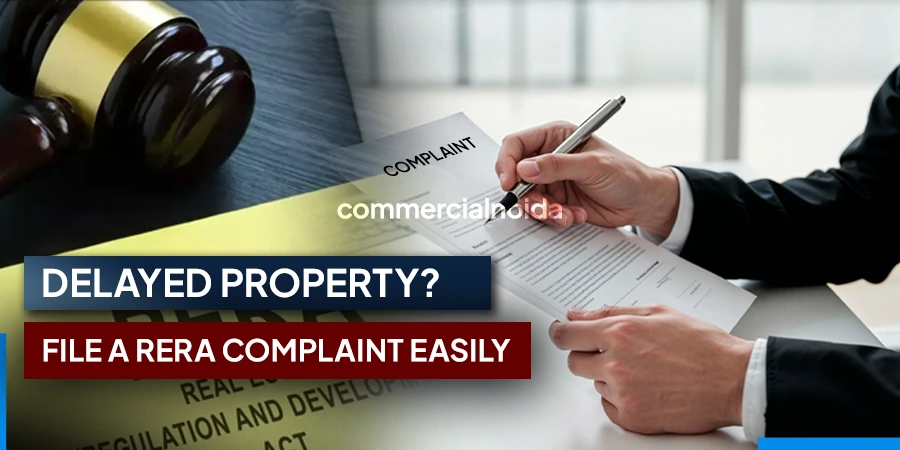
3 Easy Ways to Eliminate Capital Gains Tax On Property
Our honourable FM Nirmala Sitaraman, to rationalise and ease the taxation system, has introduced some new changes in the annual budget 2024-25. She said these changes will reduce the calculations on capital gains tax for the general citizens.
For a better understanding, you can read our comprehensive blog on LTCG tax changes in real estate and what the 2024-25 budget has for real estate.
However, she forgot to amend the acts regarding saving capital gains tax. So, we still have chances to escape. These methods to escape from taxation have been provided to us by Income Tax Act sections 54, 54EC and 54F. So, let’s embark on the journey about how to avoid paying capital gains tax on property.
Section 54 Of the Income Tax Act
Section 54 comes into force regarding capital gains tax on long-term residential properties. So, if you have unintentionally earned good returns on your residential property, this section can help you save yourself from our honourable FM.
The provision specified under section 54 command, if you have invested in a property for more than two years and have earned returns on that property, that excess amount is taxable without the benefit of indexation.
For example, If you had invested 1 Cr. in a property and sold it for 1.50 Cr after two years from the investment date. The excess amount you have earned over one cr is taxable, so the government will tax it at 12.5 per cent without indexation benefits. Please read my blog on indexation and how it is calculated on property.
Avoid capital gains tax by reinvesting
If you profit from selling a residential house, Section 54 of the tax laws can help you save on taxes. To use this exemption, you need to invest the money from the sale into another residential property in India.
You can do this by either buying a new property within two years of selling the old one, building a new property within three years of selling the old one or buying a new property within one year before selling the old one.
If your profit is less than two crores, you can invest in two new properties instead of just one. But remember, this option is only available once in your lifetime.
Here’s a quick summary of the tax-saving limits:
• Under Section 54, you can save taxes on capital gains up to 10 crore.
• Under Section 54EC, you can save taxes on up to 50 lakh.
• Under Section 54F, you can save taxes on up to 10 crore.
When I say the capped limit of reinvestment is 10 Cr. It does not mean you cannot re-invest more than ten crores; you can invest as much as you want. Still, the exemption is allowed only up to 10 crores.
For example, you earned 15 Cr from long-term capital gains on residential property and re-invested 15 Cr into another residential property. But, only ten crores out of fifteen will be tax-free; the other five crores will be taxable at 12.5 per cent.
You can also use the Capital Gains Account Scheme (CGAS). If you deposit your capital gains into CGAS, this amount can be counted as part of the cost of your new property, but only up to 10 crore.
You can use this deposit when you find the right time to invest in the new property. CGAS deposits can be in savings accounts or term deposits and will earn interest, but remember that your interest is taxable. By following this method avoid capital gains tax by reinvesting.
Income Tax Act Section 54 EC
When you sell land, a building, or both and make a profit, you can save capital gains tax through Section 54EC. This section allows you to avoid paying taxes on the profit if you invest the money from the sale into special bonds from
• Rural Electrification Corporation (REC)
• Power Finance Corporation (PFC)
• Indian Railway Finance Corporation (IRFC)
You must invest in these bonds within six months of selling the property. However, there's a limit to how much you can invest in these bonds each year, which is capped at 50 lakhs.
The tax you can avoid will be the lower of two amounts:
• the profit you made from selling the property
• or the cost of the bonds (but only up to 10 crores)
This means that even if you buy bonds worth more than ten crores, you can only get a tax break on up to 10 crores worth of bonds. If you need time to find a new property to buy or build, you can temporarily park the money from the sale in a Capital Gains Accounts Scheme (CGAS) deposit. Ensure you do this before the deadline for filing your tax return for the year you sold the property.
The bonds you buy under this section have a five-year lock-in period, which means you cannot sell or use them as collateral for a loan during this time, before April 2018, the bonds could be redeemed within three years. These bonds also pay 5.25% interest per year, which is taxable. You can save up to 50 lakhs in taxes using these bonds.
Income Tax Act Section 54F
This section explains how you can avoid paying capital gains tax on long-term capital gains when selling various assets like shares or mutual funds, but not for residential properties. To get this tax break, you must use the money from the sale to buy a new residential property in India.
You have to either buy this new property within two years of selling the old one, build it within three years, or buy it within the year before you sell it.
The amount of tax exemption you can get is calculated with a formula: A (B/C). Here, A is the profit you made from selling the old asset, B is the cost of the new property, and C is the money you got from selling the old asset. However, there’s a limit on B, which is capped at ten crore (100 million rupees).
The calculation becomes
You also have the option to deposit money in a Capital Gains Account Scheme (CGAS) to claim the exemption. You need to follow a few other rules to get this exemption. First, you should not have owned more than one residential property besides the new one when you sold the old asset.
Second, you should not buy another house or apartment, apart from the new one, within two years after selling the old asset, and you shouldn’t start building another home, other than the new one, within three years of the sale. Finally, the new property you buy has to be kept for at least three years.
Expert Advice: avoid capital gains tax by reinvesting
With this exemption, you can save up to 10 crore in capital gains tax. Experts say that you can use this exemption along with other exemptions if you meet the conditions for each. For example, if you sell a residential property, you can claim tax exemptions under sections 54 and 54EC if you follow the rules. These sections will help you to avoid capital gains tax by reinvesting.

























































































































.webp)
































































































.webp)
















































































.webp)
































































































